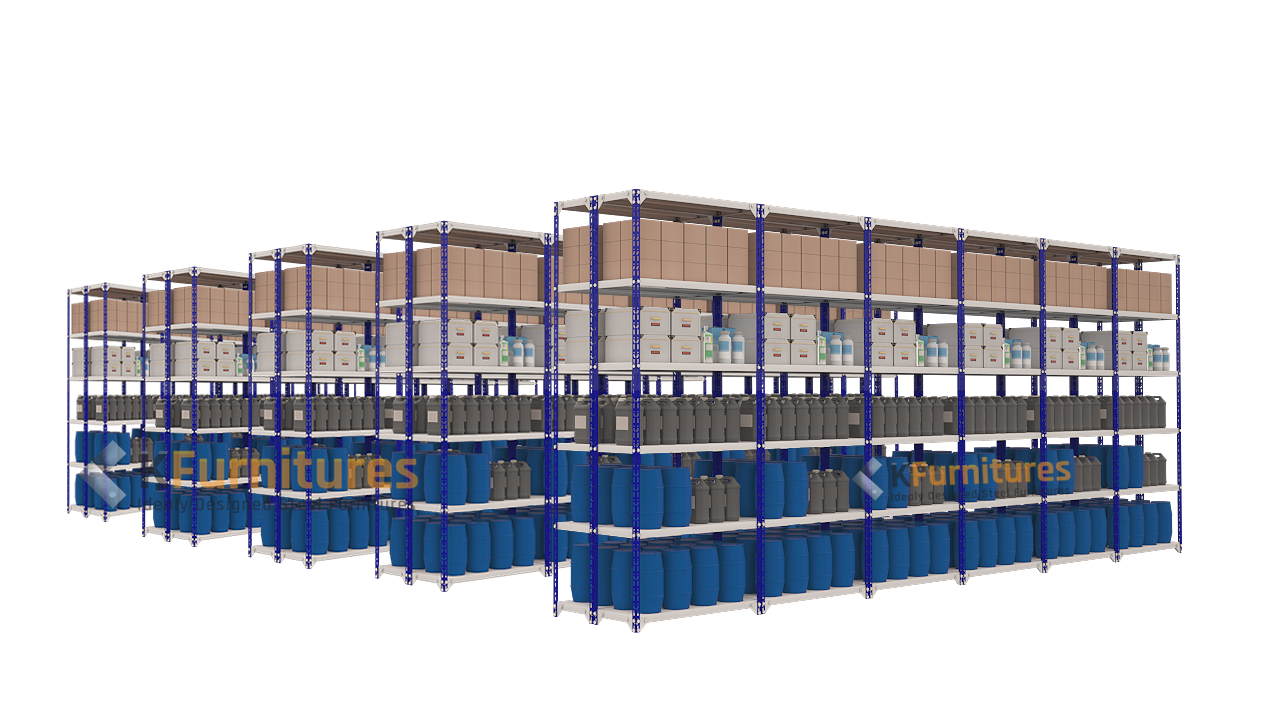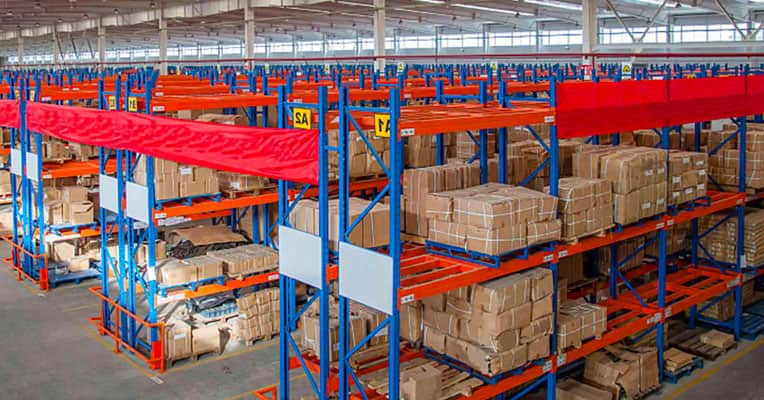Efficient warehouse management plays a vital role in the success of any business that deals with inventory. To maximize space utilization and streamline operations, the implementation of a well-designed warehouse racking system is crucial.
Warehouse racking systems provide an organized framework for storing goods, optimizing space, and improving overall productivity.
Benefits of Warehouse Racking Systems
- Maximizing Space Utilization: One of the primary advantages of warehouse racking systems is their ability to maximize the use of available space. By utilizing vertical space effectively, these systems enable businesses to store a larger quantity of goods within a limited footprint. By making use of shelving units, pallet racks, or mezzanine systems, warehouses can significantly increase their storage capacity and efficiently handle growing inventories.
- Improved Organization: Warehouse racking systems contribute to better organization and inventory management. With clearly labeled racks and aisles, it becomes easier to locate specific products, reducing the time spent on searching and picking items. Organized storage also minimizes the risk of damage or loss due to mishandling.
- Enhanced Accessibility and Productivity: Racking systems are designed to provide easy access to stored goods. By implementing features such as selective racks, drive-in racks, or push-back racks, warehouses can ensure quick retrieval of items and efficient movement of forklifts or other handling equipment. This enhanced accessibility translates into improved productivity and faster order fulfillment, contributing to higher customer satisfaction.
- Safety and Security: Safety is a paramount concern in any warehouse setting. Warehouse racking systems are built with sturdy materials and adhere to strict safety standards. They provide a secure storage environment, preventing accidents and damage caused by unstable or improperly stored items. By reducing the risk of accidents, businesses can maintain a safe working environment for their employees and protect valuable inventory.
- Flexibility and Adaptability: Warehouse racking systems offer a high degree of flexibility and adaptability to accommodate changing business needs. They can be easily adjusted or expanded as per the evolving storage requirements. This scalability allows businesses to adapt to fluctuations in inventory levels, seasonal demands, or changes in product assortment, ensuring optimal space utilization at all times.
Applications of Warehouse Racking Systems
- E-commerce and Retail: In the rapidly expanding e-commerce industry, efficient warehousing and order fulfillment are crucial for meeting customer expectations. Warehouse racking systems enable e-commerce businesses to organize their inventory, optimize storage space, and improve the efficiency of order picking and packing processes. Similarly, in traditional retail stores, racking systems facilitate easy access to products and ensure a smooth shopping experience for customers.
- Manufacturing and Distribution: Manufacturing and distribution operations often involve handling large volumes of raw materials, components, and finished goods. Warehouse racking systems streamline these processes by providing a systematic approach to storage and inventory management. They allow for efficient movement of goods, optimize floor space, and enable just-in-time production, reducing costs and improving overall operational efficiency.
- Cold Storage and Food Industry: Cold storage facilities and the food industry have unique requirements when it comes to storing perishable items. Warehouse racking systems designed for cold storage environments feature specialized materials and configurations that can withstand extreme temperatures and maintain product integrity. These systems help in organizing and storing products efficiently while ensuring proper ventilation and compliance with food safety regulations.
- Automotive and Heavy Industries: In industries like automotive and heavy equipment, warehouse racking systems are essential for managing bulky and heavy items. They provide safe and accessible storage solutions for components, spare parts, and machinery. Racking systems designed for heavy loads, such as cantilever racks or pallet racks with high load capacities, ensure the secure storage of these items, allowing for easy retrieval and minimizing the risk of damage or accidents.
- Pharmaceuticals and Healthcare: The pharmaceutical and healthcare sectors require strict adherence to storage regulations and proper handling of sensitive and delicate products. Warehouse racking systems designed for these industries offer features such as temperature control, air circulation, and specialized shelving for storing pharmaceuticals, medical supplies, and equipment. These systems ensure product integrity, easy traceability, and efficient stock rotation, essential for maintaining the quality and safety of healthcare products.
- Third-Party Logistics (3PL) Providers: Third-party logistics providers play a crucial role in managing the storage and distribution needs of multiple clients. Warehouse racking systems enable 3PL providers to efficiently handle diverse inventories, segregating and managing each client’s products separately. By implementing racking systems with barcode scanning or RFID technology, 3PL providers can enhance inventory visibility, streamline order processing, and improve overall customer satisfaction.
- Document and Archive Storage: Warehouse racking systems are not limited to physical products alone. They are also widely used for document and archive storage. Racking systems with adjustable shelves or specialized file storage solutions provide an organized and easily accessible method for storing important documents, records, or archives. This ensures efficient document retrieval, space optimization, and better document management for businesses across various industries.
Warehouse racking systems offer numerous benefits and find wide-ranging applications across industries. From maximizing space utilization to improving organization, accessibility, and productivity, these systems play a crucial role in optimizing warehouse operations.
The flexibility and adaptability of racking systems make them well-suited for various business needs, allowing for efficient storage and retrieval of goods, regardless of the industry or inventory type.
Investing in a well-designed warehouse racking system can significantly enhance a business’s operational efficiency, reduce costs, and improve customer satisfaction.
By prioritizing safety, security, and compliance with industry standards, businesses can create a safe and conducive working environment while protecting valuable inventory.
As businesses continue to evolve and adapt to changing market demands, the implementation of a robust warehouse racking system remains a critical component of successful supply chain management.
By leveraging the benefits and applications of these systems, businesses can position themselves for growth, improved efficiency, and a competitive edge in the dynamic world of logistics and warehousing.
Follow us for latest news and updates from our official Facebook, Twitter, and LinkedIn pages.
Product Enquiry



